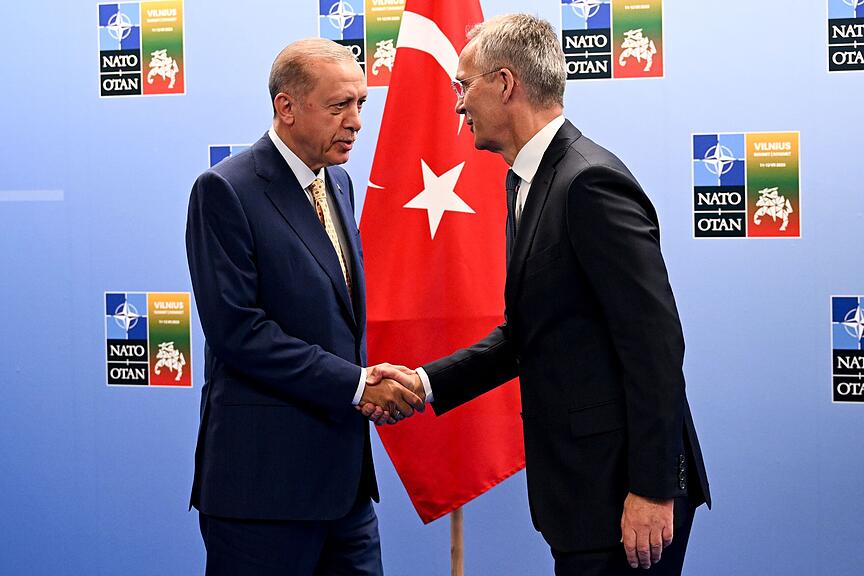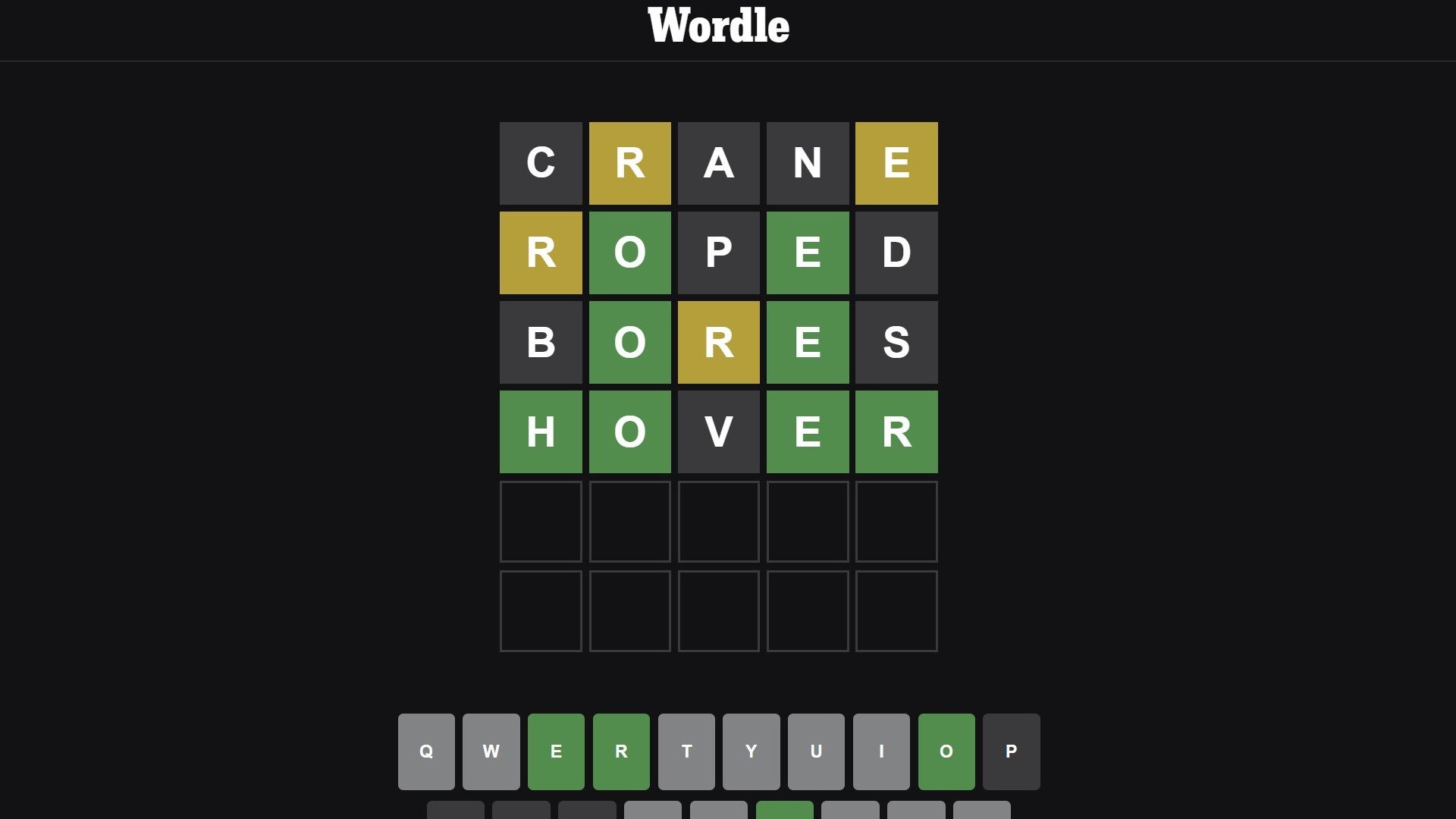Türkiye's NATO Ascent: A Defining Role In The Alliance's Future

Table of Contents
Türkiye's significance within NATO is undeniable. Its strategic location bridging Europe and the Middle East, coupled with its robust military capabilities, makes it a cornerstone of the alliance. However, the evolving geopolitical landscape presents both challenges and opportunities for Türkiye's NATO membership and its influence on NATO's future. This article will analyze Türkiye's strategic role, exploring the complexities of its relationship with other allies and its crucial contribution to shaping the alliance's future.
<h2>Türkiye's Geopolitical Significance within NATO</h2>
<h3>Strategic Location and Border Security</h3>
Türkiye's unique geographic position is paramount to its importance within NATO. Bordering both Europe and the Middle East, it sits at a critical juncture, facing numerous security challenges stemming from neighboring regions like Syria, Iraq, and Russia. This makes Türkiye's contribution to NATO's southern flank exceptionally vital.
- Cross-border security challenges: Türkiye confronts threats from ISIS remnants, Kurdish militant groups, and cross-border smuggling operations.
- Contributions to border control: Türkiye actively participates in border control operations, deploying significant resources to secure its lengthy land and maritime borders, directly contributing to NATO's collective security.
- Impact on NATO's southern flank: Türkiye's efforts significantly bolster the security of NATO's southeastern flank, mitigating risks and protecting alliance interests in the region. Its surveillance capabilities and intelligence sharing are invaluable.
<h3>Military Capabilities and Contributions</h3>
Türkiye possesses a substantial and technologically advanced military, making it a key contributor to NATO's collective defense. Its participation in various NATO operations demonstrates its commitment to the alliance.
- Key military assets: Türkiye's military boasts a modern air force, a strong navy capable of operating in the Black Sea and Mediterranean, and a well-equipped ground force.
- Involvement in NATO missions: Türkiye has participated in numerous NATO missions, including air policing operations over the Baltic states and peacekeeping missions. Its experience in counter-terrorism operations is highly valued by the alliance.
- Technological advancements: Türkiye is continuously investing in its military technology, developing indigenous capabilities and contributing to NATO's overall technological advancement.
<h2>Challenges to Türkiye's Role within NATO</h2>
<h3>Strained Relations with Allies</h3>
Tensions with some NATO members, particularly regarding Türkiye's purchase of the Russian S-400 missile defense system, have strained relations and impacted alliance cohesion. This has led to disagreements on various security matters and sanctions.
- Specific examples of disagreements: The S-400 acquisition has resulted in sanctions and reduced interoperability with certain NATO systems.
- Diplomatic efforts to resolve conflicts: While diplomatic efforts continue, bridging the gaps on this and other sensitive issues remains a significant challenge to maintaining strong alliance unity.
- Impact on joint military exercises: The S-400 issue has affected the full participation of Türkiye in certain joint military exercises and information sharing initiatives.
<h3>Regional Conflicts and Security Concerns</h3>
Türkiye's involvement in regional conflicts, particularly in Syria and Libya, has generated differing perspectives within NATO, impacting alliance unity and consensus-building.
- Different viewpoints within NATO: NATO members hold varying opinions on Türkiye's interventions in these conflicts, creating complexities in coordinating responses and maintaining a unified approach.
- Potential diplomatic solutions: Finding diplomatic solutions that reconcile Türkiye's security concerns with the broader strategic goals of NATO requires ongoing dialogue and compromise.
- Impact on alliance unity: Differences in approach to these regional conflicts risk undermining the alliance's overall cohesion and effectiveness.
<h2>Opportunities for Enhanced Cooperation and Türkiye's Future Role in NATO</h2>
<h3>Strengthening Allies' Cooperation</h3>
Despite challenges, significant opportunities exist for improved cooperation between Türkiye and its NATO allies. Open communication and collaboration are vital for addressing shared security concerns.
- Proposals for increased military exercises: Regular joint military exercises and training programs can enhance interoperability and build stronger relationships.
- Intelligence sharing: Increased information sharing and intelligence cooperation can enhance situational awareness and improve collective response capabilities.
- Diplomatic initiatives: Active diplomatic initiatives to address disagreements and find common ground are crucial for strengthening the alliance.
<h3>Addressing Shared Threats and Modernization</h3>
Collaborative efforts are necessary to combat shared threats like terrorism and cyber warfare. Technological cooperation and modernization initiatives within NATO can bolster collective defense.
- Specific examples of shared threats: Terrorism, cyberattacks, and hybrid warfare pose significant threats to all NATO members, requiring a unified and coordinated response.
- Proposals for collaborative counter-terrorism strategies: Sharing best practices, conducting joint training, and developing coordinated responses are vital in combating terrorism.
- Potential areas for technological cooperation: Collaboration on developing advanced defense technologies, cybersecurity, and intelligence systems can significantly improve NATO's overall capabilities.
<h2>Conclusion</h2>
Türkiye's crucial geopolitical position within NATO, its significant military contributions, and the challenges faced in maintaining strong alliances have been examined. The opportunities for enhanced cooperation, including addressing shared threats and facilitating modernization, are equally important to consider. Understanding Türkiye's NATO membership is vital for the alliance's success. Analyzing Türkiye's strategic role highlights the need for dialogue, compromise, and a commitment to resolving existing tensions. The future of Türkiye within NATO hinges on addressing these challenges while capitalizing on the many opportunities for a stronger, more unified alliance. We encourage readers to further explore the complexities of Türkiye's relationship with its allies and the vital role it plays in maintaining regional and global security. Understanding Türkiye's NATO membership and analyzing Türkiye's strategic role are crucial steps in ensuring a secure future for the alliance.

Featured Posts
-
 Auto Sales In China Why Bmw Porsche And Others Are Facing Difficulties
May 22, 2025
Auto Sales In China Why Bmw Porsche And Others Are Facing Difficulties
May 22, 2025 -
 The Liverpool Psg Match Arne Slots Insights On Alisson And Fortunate Circumstances
May 22, 2025
The Liverpool Psg Match Arne Slots Insights On Alisson And Fortunate Circumstances
May 22, 2025 -
 La Star Suisse Stephane Seduit Paris
May 22, 2025
La Star Suisse Stephane Seduit Paris
May 22, 2025 -
 Wordle Game 356 March 6th Hints Clues And The Answer
May 22, 2025
Wordle Game 356 March 6th Hints Clues And The Answer
May 22, 2025 -
 Analyse Van De Rol Van John Lithgow En Jimmy Smits In Dexter Resurrection
May 22, 2025
Analyse Van De Rol Van John Lithgow En Jimmy Smits In Dexter Resurrection
May 22, 2025
